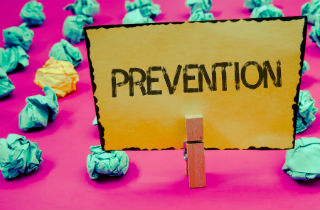Q: How can you avoid addiction relapse?
A: By knowing (and planning for) the stages of emotional, mental, and physical relapse.
More here, with a section for your questions at the end. We try to respond to all legitimate questions about finding a strategy for relapse prevention with a personal and prompt reply.
Why Self Care is Essential to Preventing Relapse
The biggest step toward recovery and in preventing relapse is the decision to change. If you have made this decision, you can begin to take small steps toward recovering from your addiction. However, recovering from an addiction is a process that takes time. Accompanied with support, caring for yourself on multiple levels is extremely important. The main goal? To learn new habits and ways of coping.
If you want to recover, you must believe in yourself. You must believe that the recovery process will work and you must realize that you will have to make sacrifices and be willing to go through a struggle. You must be willing to work toward goals and must be willing to change.
Change and setting goals in addiction recovery
The willingness to change is the one thing that addicts are reluctant to do. A feeling of insecurity and doubt can mostly cause this. Some addicts do not know what they are able and willing to change. This is a big step and a process but when this step has been made, goals can be set. Goals will be different from person to person and might include:
- Abstinence from the drug-of-choice
- Reduction of the harm of the addiction, if possible
- Reduction of the particular drug-of-choice
- Stop using one substance (but not the other), if there are more than one drug being used
Prevention of relapse
Preventing relapse must be seen as a process, which means it will take time. There are different stages to a relapse: emotional, mental and physical. Knowing the stages will help in preventing relapse and serve as warning signs to relapse. Further, what will increase your chances of relapse? Ignoring these stages…
STAGE 1: Emotion Relapse
During this stage, you do not think about using again. Instead, this stage is characterized by behavior patterns and emotions, indicating that you might have an alcohol or drug relapse in the future. The signs that you must look out for are:
- anger
- anxiety
- avoiding meetings
- do not ask for help
- intolerance
- isolation
- mood swings
- poor diet
- poor sleeping habits
STAGE 2: Mental Relapse
Your brain is a battlefield and there is a war going on. Initially, you will think of the idea of using again, but do not follow through. In the later phase, the thought will consume your more into using again. The signs you should be on guard for are:
- fantasying about your substance of choice
- hanging out with old acquaintances you use to use with
- lying
- planning a relapse
- thinking of the places you use to do drugs and the people who kept you company during this time
STAGE 3: Physical Relapse
If you think about your drug-of-choice as a viable option for long enough and do not follow the techniques given in the recovery program, you will have a physical relapse where you are using a substance or doing something you work so hard at to get away from. A physical drug or alcohol relapse can be put in motion by triggers. These other triggers of relapse often cause the alcoholic or addict to return to old habits and may manifest as:
- arguments or conflict with other people
- isolation from friends or family
- negative emotions like anger or sadness
- physical discomfort like pain
- positive emotion of wanting to feel even better
- strong urges to use
Falling into old habits
When a relapse occurs, a person starts using again or falls back into bad habits, after they were able to make some changes. The occurrence of a relapse is possible at any stage of recovery, and can happen several times during the recovery process. If this happens, addicts often feel a strong need to take the drug or continue with an action, will want more of it and needs to return to treatment immediately.
We are made unique. If you care about yourself, you will want to get better and be the person you were created to be. Self-care is essential in the road to recovery and preventing relapse.









Related Posts